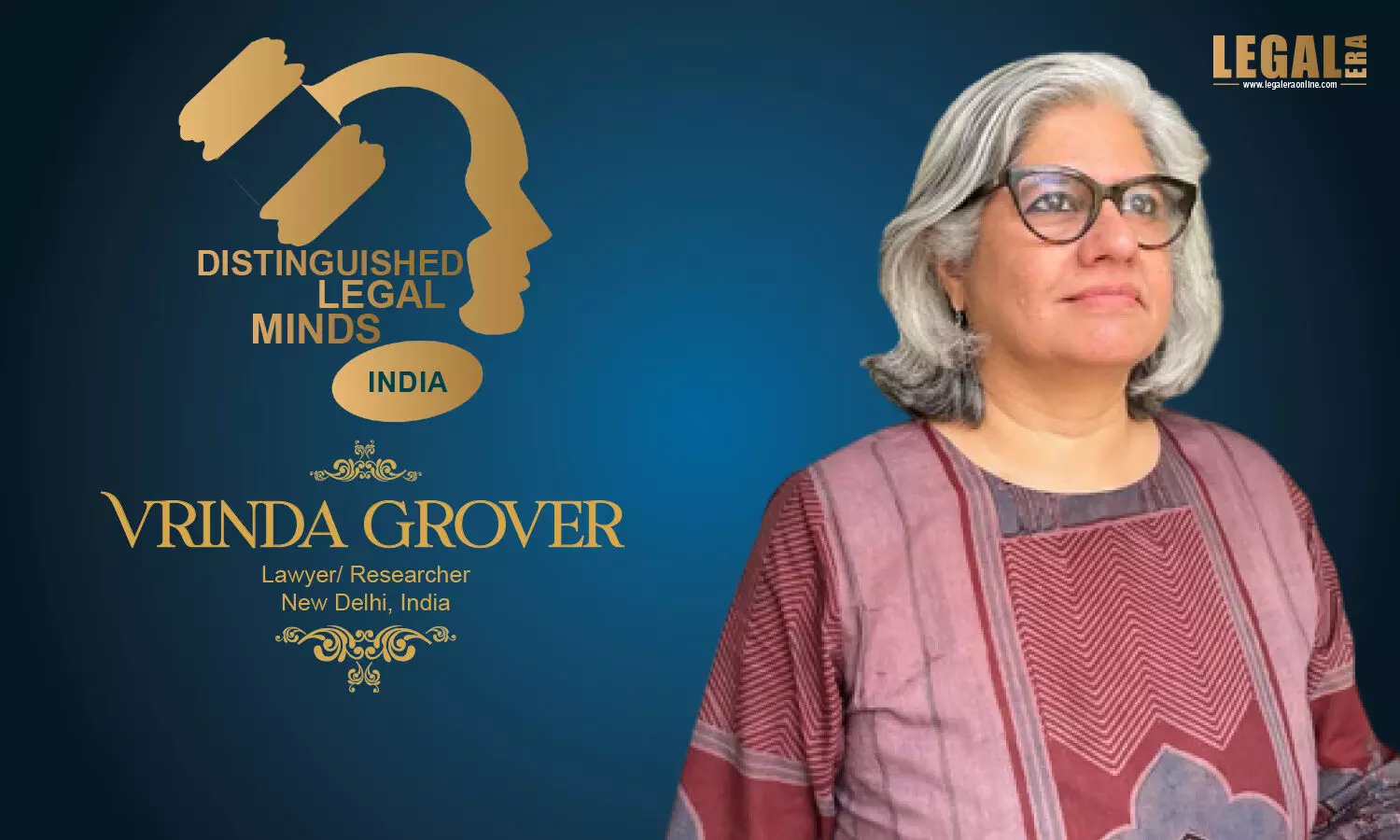
Vrinda Grover obtained her law degree from Delhi University and her Masters in Law from New York University, School of Law. She joined the Bar in 1989 and began practicing in Delhi in the chambers of her father, the iconic criminal lawyer, Mr. P.P. Grover. Ms. Grover chose the legal profession as her early interactions with the women’s movement, trade unions, and democratic rights groups, persuaded her that law may provide a route to address some of the violations and concerns.
She has appeared in landmark cases representing victims and survivors of gender-based violence, victims of state excesses, human rights defenders, media practitioners and death row convicts. As a lawyer Ms. Grover specialises in constitutional law, criminal law and human rights law. Ms. Grover has determinedly represented victims of targeted state violence, including victims of the 1984 anti-Sikh pogrom; families of the 1987 Hashimpura massacre of Muslims by the UP Provincial Armed police Constabulary; victims of gang rape during the 2013 communal violence in Muzaffarnagar; victims of mob lynching and other hate crimes.
Ms. Grover has also challenged the impunity for custodial deaths and extra judicial killings by the police, euphemistically referred to as ‘encounter killings’, by seeking independent investigation and prosecution, including, in the fake encounter of Ishrat Jahan (2004);Tamil wood cutters shot dead in Seshachalam forest (2015); the ‘Disha’ encounter in Hyderabad of 4 gang-rape suspects (2020); death of young Faizan seen in the infamous “Jana Gana Mana” video during Delhi riots (February 2020), etc. Committed to championing the rights of freedom of press and free speech, Ms. Grover has appeared for journalists, and successfully challenged the internet shutdown in Kashmir in 2019 on behalf of the Kashmir Times Editor, Anuradha Bhasin. Arguing that dissent was a constitutionally protected right, Ms. Grover also represented prominent human rights defenders in the Bhima Koregaon case. Firmly committed to the abolition of death penalty, she represented some of the death row convicts in the Nirbhaya gang rape and murder case.
From feminist street theatre during her college days, Ms. Grover continues to actively engage with the women’s rights movements. She has contributed to the drafting of laws relating to violence against women, including The Criminal Law Amendment Act, 2013, expanding the scope of sexual offences and conceptualizing bodily integrity and sexual autonomy for women. Her reflections on these amendments are found in her writing, "Citadels of Power and Impunity, Disturbed but Not Dislodged, evaluating the 2013 Law Reforms in the Anti Rape Law in India". Ms. Grover was appointed as a Member of the Independent Expert Panel on Prevention of and Response to Harassment, including Sexual Harassment, Bullying and Abuse of Power at UNAIDS (2018).
Ms. Grover’s research and writing focuses on the role of the state in the context of violence, impunity, and accountability, the freedom of assembly in India and juridical stereotyping of victims of sexual violence. Her primary research examines gaps in the law that perpetuates injustice in the context of communal violence, in the 1984 anti-Sikh pogrom and the 2008 attack on Christians in Kandhamal. As a recipient of the Nehru Memorial Museum and Library fellowship, she researched the legal history of the evolving jurisprudence of mass crime in India.
In 2013, the TIMES magazine listed her among the 100 most influential people in the world; in 2015 she was bestowed with the Hakim Khan Sur award by the Maharana of Mewar Charitable Foundation. In 2018, Ms. Grover was conferred an Honorary Doctorate of Laws Degree by SOAS, University of London, in recognition of her contribution to the area of human rights and civil liberties. Ms. Grover is a prominent commentator on jurisprudential issues relating to discrimination and subordination of women and other marginalized groups.


